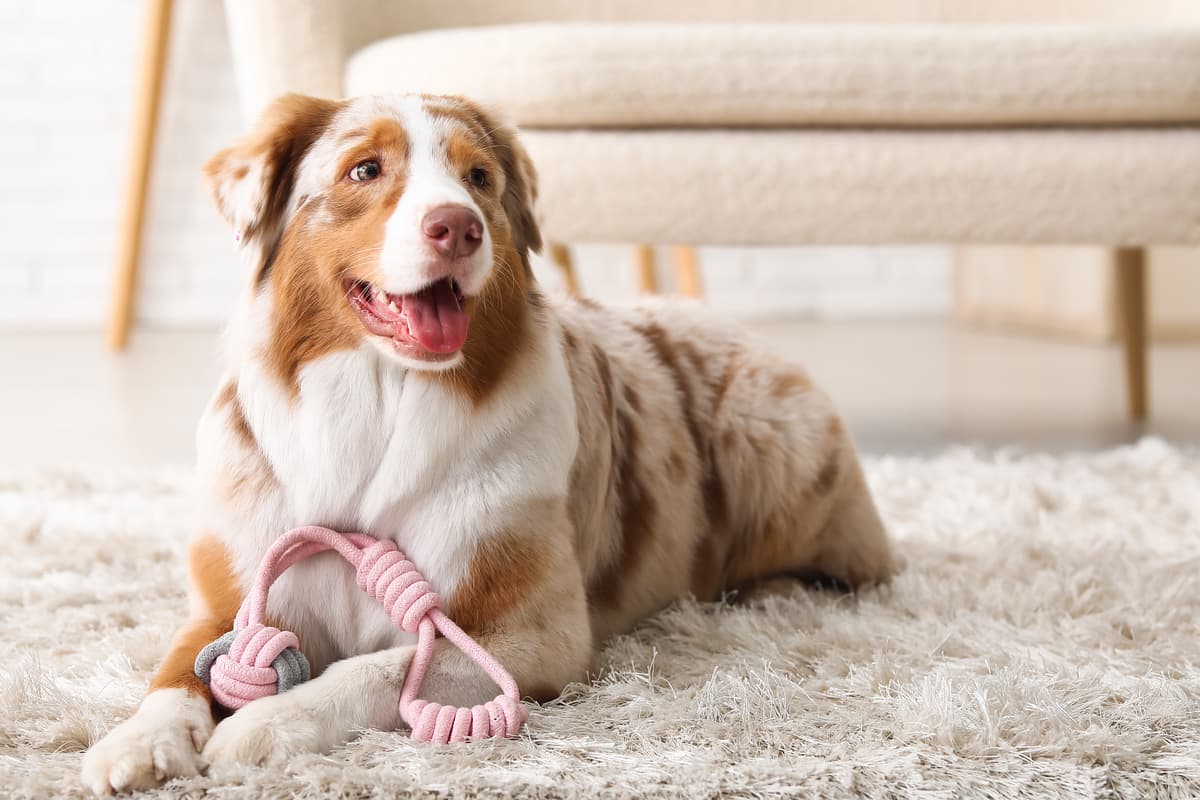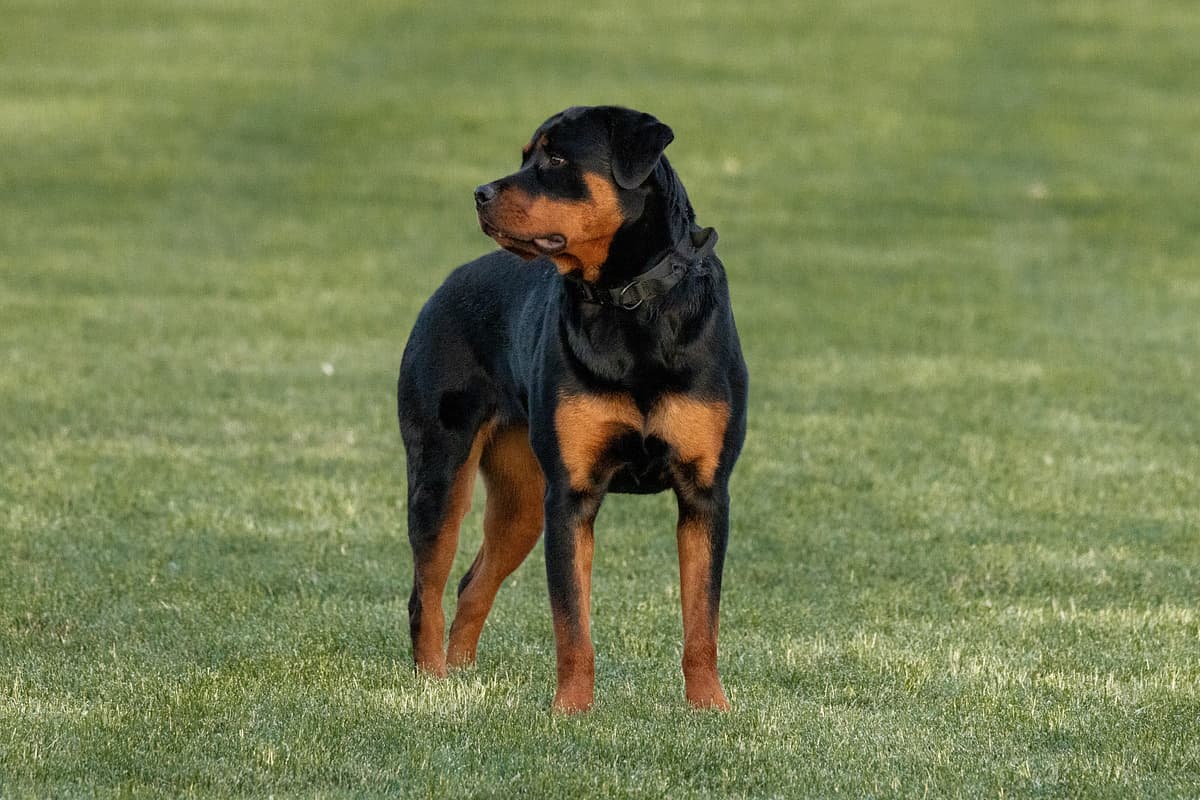Australian Shepherd vs Rottweiler
Discover the differences between Australian Shepherd and Rottweiler to make the best choice for your situation.
Try different breeds

Australian Shepherd
Highly energetic, intelligent, and eager to please, this breed thrives on activity and close human bonds. Known for loyalty and agility, it makes an excellent companion for active families.

Rottweiler
Confident, loyal, and protective, this powerful companion thrives with purpose and bonds deeply with its family. Highly intelligent and alert, always eager to please and protect loved ones.
Quick comparison
Medium
23–29 kg
Double coat, medium length
12–15 years
18–25 kg
High energy
Large
50–60 kg
Short, dense
9–10 years
35–48 kg
High energy
Personality & behavior
Compare the personality traits and behavioral characteristics of both breeds.
Australian Shepherd
Generally sociable, bonds well with family members
Very quick learner, excels at problem-solving
Extremely active, requires plenty of exercise
Loves games, enjoys interactive playtime
Can adjust, but prefers routine and familiarity
Rottweiler
Often reserved, loyal with familiar people
Quick learner, responds well to training
Active, enjoys regular exercise and tasks
Moderately playful, enjoys interactive games
Adjusts well to various living environments
Care needs
Exercise, grooming, and daily care requirements
Australian Shepherd
Hip dysplasia, epilepsy
Rottweiler
Hip dysplasia, elbow dysplasia
Suitability
How well each breed fits different living situations and families
Australian Shepherd
Challenging for beginners
Needs experienced, consistent training and mental stimulation
Not ideal
Requires space and high activity levels to thrive
Excellent match
Thrives with active owners who provide regular physical and mental exercise
Good fit
Energetic yet gentle, but may herd or nip during play
Usually compatible
Generally sociable but may try to herd other pets
Prone to anxiety
Dislikes being left alone for long periods and may develop destructive behaviors
Rottweiler
Challenging for novices
Needs experienced handling and consistent training to thrive
Space limitations
Needs room to move and regular exercise for well-being
Excellent fit
Enjoys physical activity and benefits from daily exercise routines
Supervision needed
Strong and large, may be overwhelming for small children without close supervision
May need caution
Can be territorial or dominant without early socialization with other pets
Not recommended
Dislikes being left alone and may develop behavioral issues if isolated
Breed strengths
What each breed excels at and their best qualities
Australian Shepherd
- Highly intelligent and quick to learn tasks
- Strong herding instincts and work drive
- Loyal and forms close family bonds
- Excellent stamina for long activity periods
- Generally healthy with few breed-specific issues
Rottweiler
- Confident and self-assured demeanor
- Strong protective instincts toward family
- Highly trainable and responsive to commands
- Physically robust with great endurance
- Loyal and forms close bonds with owners
Challenges & considerations
Potential challenges and considerations for each breed
Australian Shepherd
- Needs significant daily mental stimulation
- Prone to separation anxiety if left alone
- Requires extensive physical exercise every day
- Can be wary or reserved with strangers
- May herd children or other pets instinctively
Rottweiler
- Can be wary of unfamiliar people
- Needs consistent, firm training and guidance
- Prone to territorial and guarding behaviors
- Requires significant physical and mental exercise
- May develop aggression if poorly socialized
Ready to choose your perfect breed?
Learn more about each breed or compare other breeds to find the perfect match for your lifestyle.
Discover more helpful tools
Make use of our other free tools to get the most out of your pet experience
